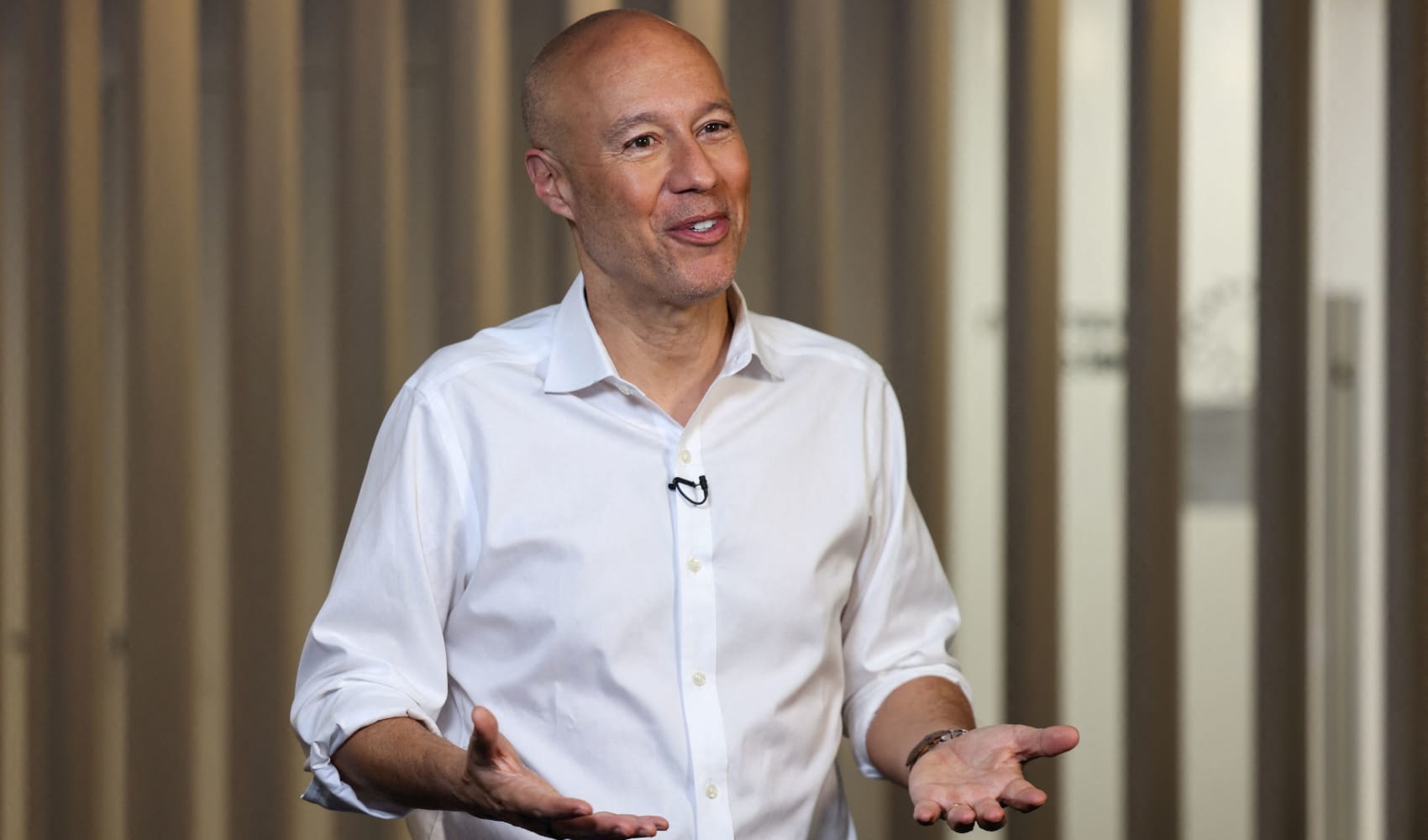CEO Rejects $600M, Now Worth $4.4B: The Box Story
From "Freaked Out" to $4.4 Billion: The Box CEO's $600 Million Gamble
Introduction: The Moment of Truth
We've all been there, haven't we? Staring down a life-altering decision, palms sweating, mind racing. But imagine that decision involved a cool $600 million. That's exactly where Aaron Levie, the CEO of Box, found himself. This is the story of how rejecting a massive acquisition offer left him "freaked out" and sleepless, but ultimately paved the way for a company now worth a staggering $4.4 billion. It’s a tale of guts, vision, and a whole lot of sleepless nights. Get ready to dive into the moment that changed everything.
The Early Days: Building a Cloud Empire
Aaron Levie wasn't your typical Silicon Valley prodigy. He dropped out of college to chase a dream, a vision of a better way to manage and share files in the cloud. Along with three friends, he co-founded Box, a company that would eventually revolutionize the way businesses collaborate. But in the early days, it was all about hustle, innovation, and a relentless belief in their product.
The Foundation of Box
The initial idea was simple: create an easy-to-use, secure platform for businesses to store and share files. Think of it as a digital filing cabinet in the sky. But the execution was anything but simple. They faced numerous challenges, from securing funding to building a reliable and scalable infrastructure. But their determination never wavered.
The Tempting Offer: $600 Million on the Table
Fast forward six years. Box was gaining traction, but it was still a relatively small player in the tech world. Then came the offer: Citrix, a much larger competitor, wanted to acquire Box for $600 million. For a young company still finding its footing, this was a life-changing sum. It was a chance for the co-founders to cash out and walk away with a fortune. But was it the right move?
The Allure of Instant Gratification
Imagine being in their shoes. $600 million. Enough money to set you and your family up for life. The temptation to take the money and run must have been immense. Who wouldn't be tempted? But Aaron Levie and his co-founders had to weigh the immediate benefits against the potential for something much, much bigger.
The "Freaked Out" Decision: Turning Down the Money
This is where the story gets really interesting. After much deliberation, agonizing over every possible scenario, Aaron Levie and his co-founders made a bold decision: they rejected the $600 million offer. Levie described the aftermath as being "freaked out" and experiencing sleepless nights. The weight of the decision, the uncertainty of the future, it all took a toll. It was a huge gamble, a bet that their vision was worth more than a guaranteed payout.
The Emotional Rollercoaster
Can you imagine the internal conflict? The pressure from investors, the doubts creeping into your mind, the fear of failure? It must have been an emotional rollercoaster. Turning down that kind of money takes serious conviction and a unwavering belief in yourself and your team.
The Vision: Building Something Bigger
So, what drove them to reject such a substantial offer? It came down to vision. Levie and his team believed that Box had the potential to become a dominant force in the cloud content management space. They saw a future where Box was not just a file-sharing tool, but a platform that powered collaboration and innovation for businesses around the world.
Beyond File Sharing: The Platform Play
Their vision extended far beyond simple file sharing. They wanted to build a platform that integrated with other business applications, allowing users to seamlessly manage and collaborate on content across their entire organization. This strategic shift required significant investment in research and development, but it ultimately proved to be a game-changer.
The Risk: The Price of Ambition
Rejecting the acquisition offer was a huge risk. There was no guarantee that Box would be successful. The market could have shifted, competitors could have emerged, or they could have simply run out of money. But Levie and his team were willing to take that risk in pursuit of their vision.
The Potential for Failure
It's crucial to remember that failure was a very real possibility. Many startups don't make it. The tech world is littered with companies that had great ideas but couldn't execute. The decision to reject the offer was essentially a bet against the odds, a wager that they could overcome the challenges and build a lasting company.
The Long Game: Staying the Course
In the years that followed, Box faced numerous challenges. They had to compete against larger, more established companies. They had to constantly innovate to stay ahead of the curve. And they had to navigate the ever-changing landscape of the tech industry. But through it all, they stayed true to their vision.
Innovation as a Constant
Innovation became a core value at Box. They were constantly experimenting with new technologies and features, always looking for ways to improve the user experience and provide more value to their customers. This commitment to innovation helped them differentiate themselves from the competition and attract a loyal customer base.
The Payoff: $4.4 Billion and Counting
And now, the payoff. Today, Box is worth a staggering $4.4 billion. Their initial gamble paid off in a big way. They transformed from a small startup into a publicly traded company with a global presence. Their story is a testament to the power of vision, determination, and a willingness to take risks.
A Lesson in Perseverance
Box's success is not just about luck. It's about perseverance, resilience, and the ability to learn from mistakes. They faced setbacks and challenges along the way, but they never gave up on their vision. Their story is an inspiration to entrepreneurs everywhere.
The Legacy: More Than Just a Number
Ultimately, the success of Box is about more than just the numbers. It's about the impact they've had on the way businesses work and collaborate. They've helped companies of all sizes become more efficient, more innovative, and more connected. And that's a legacy that will last long after the company's value is measured in dollars.
Empowering Businesses Worldwide
Box has become an indispensable tool for businesses around the world. It's helped them streamline their workflows, improve collaboration, and protect their valuable data. In a world that is increasingly digital, Box has played a crucial role in helping businesses adapt and thrive.
The Impact: Aaron Levie's "Freaked Out" Decision Continues to Inspire
Aaron Levie's story is a powerful reminder that sometimes, the biggest risks yield the greatest rewards. His "freaked out" decision to reject the $600 million offer ultimately led to a company worth billions. It's a story that continues to inspire entrepreneurs and business leaders around the world.
Taking the Leap of Faith
Levie's journey highlights the importance of taking calculated risks and believing in your vision, even when the odds are stacked against you. It’s a story about betting on yourself and your team. Are you ready to take the leap of faith?
Conclusion: Key Takeaways from the Box Story
So, what can we learn from Aaron Levie's journey from "freaked out" to $4.4 billion? First, vision is paramount. You need to have a clear understanding of what you want to achieve. Second, determination is essential. You'll face challenges and setbacks, but you need to stay the course. Third, risk-taking is often necessary. Sometimes, you have to take a gamble to achieve your goals. And finally, believe in yourself. If you don't believe in your vision, no one else will. The Box story is a compelling lesson in entrepreneurship, leadership, and the power of a bold decision.
Frequently Asked Questions
- What specific factors made Aaron Levie and his co-founders reject the $600 million offer?
They believed that Box had the potential to be much more than just a file-sharing company. They envisioned a broader platform for content management and collaboration, and they felt that the acquisition would limit their ability to pursue that vision.
- How did the "freaked out" feeling and sleepless nights impact Aaron Levie's decision-making process?
The stress and uncertainty forced him to deeply analyze the risks and rewards of both options. It pushed him to solidify his conviction in Box's long-term potential and to trust his instincts.
- What were some of the biggest challenges Box faced after turning down the acquisition offer?
Competing with larger, more established companies, securing additional funding, and constantly innovating to stay ahead of the curve were major hurdles.
- What key strategies did Box implement to differentiate itself from its competitors?
Focusing on enterprise-level security and compliance, building a strong ecosystem of integrations with other business applications, and providing exceptional customer support were key differentiators.
- What advice would Aaron Levie likely give to other entrepreneurs facing similar acquisition offers?
Thoroughly assess your company's long-term potential and vision, understand the true value you bring to the market, and don't be afraid to bet on yourself if you believe you can build something truly special.





